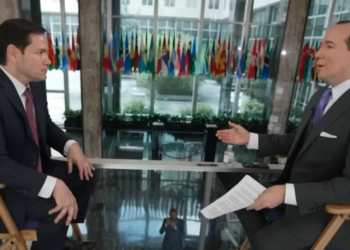Cllr Robert Ward represents Selsdon and Addington Village Ward on Croydon Council.
In the late 1970s, as an occasional visitor to Shiraz, it was clear to me that the Shah was very much in command – a command maintained by the quiet menace of the Savak, his secret police. The mandatory portrait of the Shah in every meeting room bore more resemblance to Orwell than to that of Her Majesty back home. Rather than a polite nod to tradition, in Iran, it was a warning: Big Brother was watching, always.
Mention of the Shah brought any conversation with local people to a swift close. The risk you might be a Savak informant was too high. The mood only began to change, astonishingly quickly, in late 1978. On what turned out to be my final visit, a taxi driver said bluntly: “The Shah is a very bad man.”
It was my turn to worry that the other person in the conversation was a Savak informer. He wasn’t; he was, as it turned out, simply reflecting the mood on the street. People were no longer afraid.
Whilst Iran’s bazaars and backstreets were rumbling with revolution, the West was oblivious. The Shah was still being feted in polite editorial pages as a pro-Western moderniser, a muscular bulwark against Soviet mischief in the Gulf. That this “strongman” was, in fact, wobbling on the edge of exile seemed inconceivable – until he was gone.
What followed, sadly, was not the dawn of democracy, but the long night of the mullahs. If the Shah had been brutal, the new regime took brutality to a new level. Iran did not trade tyranny for liberty, only one form of oppression for another, now in clerical robes.
And yet, there are now flickers, indeed more than flickers, of that spirit of almost half a century ago stirring once again. Protests following the death of Mahsa Amini spread throughout Iran. Young people, and young women especially, were at the forefront. It is they who suffer the most.
Perhaps the taxi drivers in Shiraz are once more willing to criticise the regime. The courage required to speak out, even obliquely, should not be underestimated. For every person who voices dissent, there are dozens more who think it, but dare not say. So, what should we do?
The West, and Britain in particular, should begin by abandoning appeasement. The fiction of “moderate mullahs” has outlived its usefulness, if ever it was useful at all. Decades of indulgence only emboldened Tehran. A theocracy does not mellow with age. It ossifies – then lashes out.
Iran is no desert backwater. It is a nation of 90 million, a cradle of civilisation with a cultural and intellectual heritage stretching back millennia. This is the land of Cyrus the Great and Persepolis, of poets and philosophers, of mountains and Zoroastrian fire temples. Mount Damavand watches over it all, snow-capped and silent. Iran is ancient, proud, and deeply modern beneath the layers of imposed medievalism.
And when the regime falls, for fall it must, what follows matters. Too often, the West defaults to preferring stability over freedom, particularly when oil is involved. The temptation to meddle, to impose a hand-picked strongman or even revive the old dynasty, will be strong. We’ve got previous here. But Iran is not Libya. It is not Iraq. It is not the Soviet Union. It is Iran.
The idea that there is no alternative to the current regime is a myth. The Iranian people do not lack for courage or organisation. They have an exiled opposition in the form of the National Council of Resistance of Iran (NCRI), led by Maryam Rajavi. She argues for change generated from within Iran. (Another group, the Iran National Council, tends to get more coverage, owing largely to the spectacle of being headed by Reza Pahlavi, the son of the deceased Shah.)
This approach requires no foreign interference, no foreign military boots on the ground, or even financial support – just recognition of their right to resist tyranny.
Western governments, especially the UK, should officially recognise the NCRI as a legitimate democratic alternative. Rajavi’s ten-point plan offers a vision for a free, secular democracy in Iran, committed to gender and religious equality, abolition of the death penalty, judicial independence, and dismantling the nuclear program. It deserves to be taken seriously.
The British government should engage with the NCRI, formally recognise it as a legitimate voice of opposition, and offer political support to those inside Iran seeking change. Real change. Not Western-imposed puppet regimes, but a homegrown democracy.
In a world increasingly short on optimism, Iran is one of the few places where the arc of history might still be bending towards freedom and justice. The will of the people is evident. What remains is for us in the West to live up to our own values.
“Democracy for me, but authoritarianism for thee” is not a principle worthy of us. The Iranian people, not least their brave young women, and the taxi drivers of Shiraz, deserve their chance.





![Gavin Newsom Threatens to 'Punch These Sons of B*thces in the Mouth' [WATCH]](https://www.right2024.com/wp-content/uploads/2025/08/Gavin-Newsom-Threatens-to-Punch-These-Sons-of-Bthces-in-350x250.jpg)
![ICE Arrests Illegal Alien Influencer During Her Livestream in Los Angeles: ‘You Bet We Did’ [WATCH]](https://www.right2024.com/wp-content/uploads/2025/08/ICE-Arrests-Illegal-Alien-Influencer-During-Her-Livestream-in-Los-350x250.jpg)








